News Archive
From lane-keep assistance to blind spot detection, today’s cars come equipped with autonomous driving features that make driving easier and safer. Rene Mai, a doctoral student at Rensselaer Polytechnic Institute, imagines a world in which humans and machines complement each other’s strengths to do more together, a concept known as “symbiotic autonomy.”
Hunter Belanger ’18, ’19G, Ph.D., assistant professor in Rensselaer Polytechnic Institute’s Department of Mechanical, Aerospace, and Nuclear Engineering (MANE), is one of four researchers nationwide to receive a Department of Energy Distinguished Early Career Award.The five-year, $625,000 grant will fund Belanger’s research aimed at making nuclear power safer and more efficient, supporting state and national efforts to transition away from carbon-emitting energy sources.
Rich Radke
Rich Radke, Ph.D., professor in Rensselaer Polytechnic Institute’s Department of Electrical, Computer, and Systems Engineering, has won the IEEE Signal Processing Society Regional Distinguished T
On April 26, seven Rensselaer Polytechnic Institute undergraduate students showcased research projects in the areas of materials science, computer modeling, chemical engineering, and more at a symposium held at Corning’s Sullivan Park Science & Technology Center just outside of Corning, New York.
On April 26, seven Rensselaer Polytechnic Institute undergraduate students showcased research projects in the areas of materials science, computer modeling, chemical engineering, and more at a symposium held at Corning’s Sullivan Park Science & Technology Center just outside of Corning, New York.
Researchers at Rensselaer Polytechnic Institute have fabricated a device no wider than a human hair that will help physicists investigate the fundamental nature of matter and light. Their findings, published in the journal Nature Nanotechnology, could also support the development of more efficient lasers, which are used in fields ranging from medicine to manufacturing.
The Department of Biomedical Engineering at Rensselaer Polytechnic Institute has established a new master’s degree program that will prepare students for careers of biomedical data science, a fast growing engineering specialty.Those with expertise in biomedical data science are already in high demand, and that demand will continue to rise in the future, said Juergen Hahn, Ph.D., head of the Biomedical Engineering Department.
Rensselaer Polytechnic Institute (RPI) today announced two special honorands for its Bicentennial Commencement celebrations. Astronaut and Artemis II Commander Reid Wiseman ’97 will return to RPI as the Bicentennial Commencement Speaker, and Emily Warren Roebling, who led the construction of the Brooklyn Bridge to completion, will receive a posthumous honorary degree, the first to be awarded in the history of RPI.Reid Wiseman ’97
Rensselaer Polytechnic Institute’s Boleslaw Szymanski, Ph.D., and Chunyu Wang, M.D. Ph.D., have been elected fellows of the American Association for the Advancement Science (AAAS). Steven Cramer, Ph.D., who was elected AAAS Fellow in 2017, was elected Council Member of the Section on Engineering.
Six RPI students have been awarded fellowships from the National Science Foundation’s Graduate Research Fellowship Program (GRFP).
Jonathan Dordick, Ph.D., Vice President for Strategic Alliances and Translation and Institute Professor of Chemical and Biological Engineering at Rensselaer Polytechnic Institute (RPI), has recently received two prestigious honors.
We all know how a bad night’s sleep can affect how we feel. In fact, the disruption of our sleep has been implicated at many levels of human disease, including cancer, diabetes, heart disease, and disorders associated with aging.
Rensselaer Polytechnic Institute students will have the opportunity to meet with and learn from forensic scientists and other professionals from the New York State Police (NYSP) Crime Laboratory System at 2 p.m. on March 26 at the Shirley Ann Jackson, Ph.D. Center for Biotechnology and Interdisciplinary Studies.
Heparin, the world’s most widely used blood thinner, is used during procedures ranging from kidney dialysis to open heart surgery. Currently, heparin is derived from pig intestines, but scientists at Rensselaer Polytechnic Institute have discovered how to make it in the lab. They have also developed a path to a biomanufacturing process that could potentially revolutionize how the world gets its supply of this crucial medicine.
Researchers from Rensselaer Polytechnic Institute (RPI) will use hemp to
develop a commercially viable, durable, and low-embodied-carbon insulated siding product to
address what the U.S. Green Building Council says is a “crucial need for building retrofits to
improve energy efficiency and reduce carbon emissions.”
Just shy of 50 teams of students from area high schools and around the world will compete at the 2024 New York Tech Valley FIRST ® Robotics Competition at MVP Arena March 22-23, 2024. Inventor Dean Kamen founded FIRST® (For Inspiration and Recognition of Science and Technology) in 1989 to inspire an appreciation of science and technology in young people. Rensselaer Polytechnic Institute hosted the first regional event in 2014 and has been a major sponsor ever since.
Just shy of 50 teams of students from area high schools and around the world will compete at the 2024 New York Tech Valley FIRST ® Robotics Competition at MVP Arena March 22-23, 2024. Inventor Dean Kamen founded FIRST® (For Inspiration and Recognition of Science and Technology) in 1989 to inspire an appreciation of science and technology in young people. Rensselaer Polytechnic Institute hosted the first regional event in 2014 and has been a major sponsor ever since.
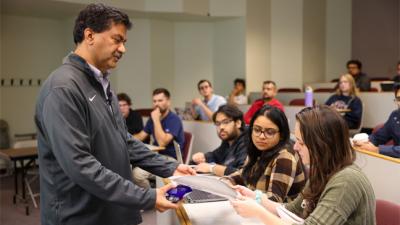 Rensselaer Polytechnic Institute Develops New Courses in Semiconductors in Partnership With Industry
Rensselaer Polytechnic Institute Develops New Courses in Semiconductors in Partnership With Industry
With the CHIPS and Science Act, the United States’ commitment to becoming a global leader in semiconductor manufacturing once again was formalized. After the recent global chips shortage, combined with the pervasiveness of chips in our everyday products from refrigerators, to cars, to watches, it is now a national priority to ensure that semiconductors are produced domestically for economic and security reasons.
Steve Eshiemogie, a doctoral student studying chemical and biological engineering at Rensselaer Polytechnic Institute, has been recognized as an honorable mention in the annual Cell Press Rising Black Scientists Awards for his essay “From village to lab: An African scientist’s quest for a sustainable future.” [MS1] More than 350 students across a range of scientific disciplines applied.
From computer chips and pharmaceuticals to batteries and airplanes, our world runs on manufactured goods and products. However, most people rarely think about how these things get made — not to mention the technology and engineering that goes into making them at scale.

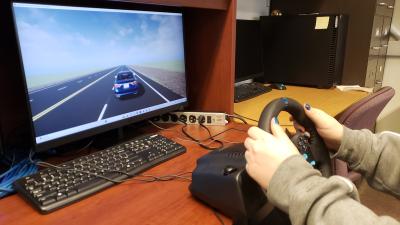 RPI Doctoral Student Designs Ways for Humans and Machines to work ‘symbiotically’
RPI Doctoral Student Designs Ways for Humans and Machines to work ‘symbiotically’
 With New Grant, RPI Researcher Unravels Causes of ‘Neutron Noise’ in Nuclear Reactors
With New Grant, RPI Researcher Unravels Causes of ‘Neutron Noise’ in Nuclear Reactors
 RPI Professor Rich Radke Recognized by IEEE for Innovative Pedagogy
RPI Professor Rich Radke Recognized by IEEE for Innovative Pedagogy
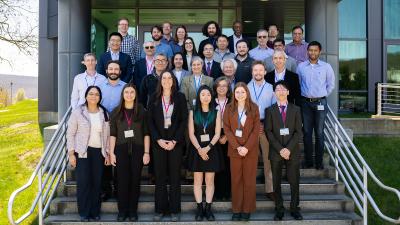 Undergraduates Gain Research Experience, Mentorship Through RPI-Corning Program
Undergraduates Gain Research Experience, Mentorship Through RPI-Corning Program
 How a Tiny Device Could Lead to Big Physics Discoveries and Better Lasers
How a Tiny Device Could Lead to Big Physics Discoveries and Better Lasers
 RPI’s New Master of Biomedical Engineering Data Science Readies Students for Careers in Health Sciences, Clinical Research, and more
RPI’s New Master of Biomedical Engineering Data Science Readies Students for Careers in Health Sciences, Clinical Research, and more
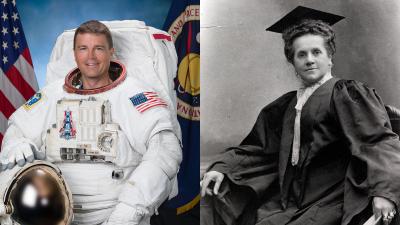 Rensselaer Polytechnic Institute Announces Reid Wiseman as Bicentennial Commencement Speaker and Will Award Its First Posthumous Honorary Degree to Emily Warren Roebling
Rensselaer Polytechnic Institute Announces Reid Wiseman as Bicentennial Commencement Speaker and Will Award Its First Posthumous Honorary Degree to Emily Warren Roebling
 Three Rensselaer Polytechnic Institute Faculty Members Honored by AAAS
Three Rensselaer Polytechnic Institute Faculty Members Honored by AAAS
 Six RPI Students Receive Prestigious NSF Graduate Research Fellowships
Six RPI Students Receive Prestigious NSF Graduate Research Fellowships
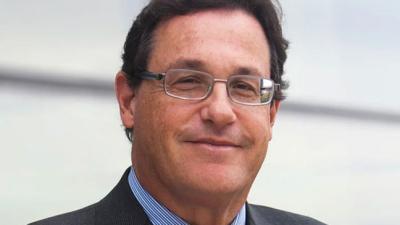 Professor Jonathan Dordick Receives Two Prestigious Honors
Professor Jonathan Dordick Receives Two Prestigious Honors
 RPI To Host Panel on Sleep and Your Health April 16
RPI To Host Panel on Sleep and Your Health April 16
 Forensic Scientists To Present at RPI
Forensic Scientists To Present at RPI
 Scientists’ Discovery Could Reduce Dependence on Animals for Vital Anti-Blood Clot Drug
Scientists’ Discovery Could Reduce Dependence on Animals for Vital Anti-Blood Clot Drug
 RPI Researchers Awarded $1.5M To Produce Hemp-Based Insulated Siding
RPI Researchers Awarded $1.5M To Produce Hemp-Based Insulated Siding
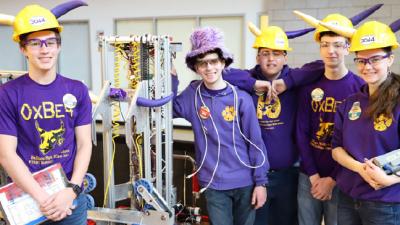 Nearly 50 High School Teams To Compete in New York Tech Valley FIRST® Robotics Competition
Nearly 50 High School Teams To Compete in New York Tech Valley FIRST® Robotics Competition
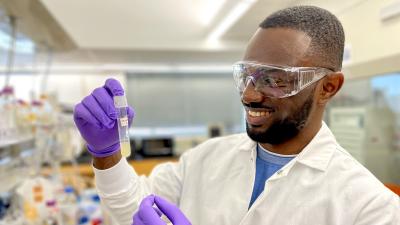 RPI Doctoral Student Honored as Rising Black Scientist
RPI Doctoral Student Honored as Rising Black Scientist
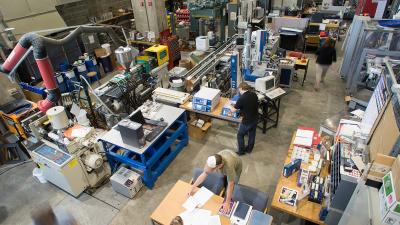 Made at RPI: Celebrating More Than Four Decades of Manufacturing Education
Made at RPI: Celebrating More Than Four Decades of Manufacturing Education